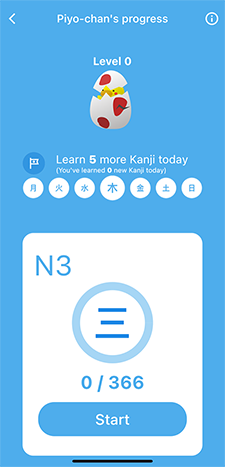

Japanese-German start-up has developed an innovative kanji app
One of the hardest challenges of learning Japanese is the acquisition of the characters known as Japanese kanji. The official list of common kanji released by the Japanese Ministry of Education comprises over 2000 kanji, which are regularly used in daily Japanese. For Japanese learners, this can seem overwhelming.
Even ambitious and motivated learners experience difficulties and sometimes frustration when trying to remember over 2000 complex kanji in their long-term memory. When confronted with so many different characters, learners can easily lose track of which kanji should be repeated at what time, since the optimal repetition timing for a kanji depends on a combination of different factors.
This is where Kanji Native offers a solution. The free-of-charge app makes use of an intelligent spaced repetition algorithm which takes the user’s forgetting curve for each kanji separately into account. As a result, users can store the kanji with more ease in their long-term memory while eliminating unnecessary repetitions.
Founder Yuko Fukuda explains: Kanji Native’s mission is to provide qualitative materials in conjunction with an effective and efficient learning method for the long-term acquisition of kanji in context.
The start-up, being supported by ZENIT, a German partner in the Enterprise Europe Network, is welcoming partnerships with educational institutions and European companies with a strong interest in Japan to further develop the app and build a community.
Inspired by an educational programme of The Japan Foundation for Japanese teachers in Europe, the app’s founder endeavoured to develop a solution for the major challenges encountered especially by Europeans when learning Japanese: Owing to the great differences between Japanese and European languages, the typical choice of words, usage frequency and context are often unintuitive and hard to grasp. These observations motivated the rationale behind Kanji Native’s data-driven approach, which identifies and teaches only relevant vocabularies along with easy-to-understand example sentences in a meaningful context.
Interested companies and educational institutions can get in touch with Adina Golombeck-Tauyatswala at ZENIT.
Published: March 2022
The EU-Japan Centre currently produces 5 newsletters :









